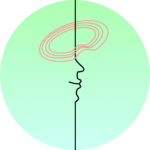Exploring the Mind: How Cognitive Psychology Explains Problem-Solving
Cognitive psychology offers profound insights into how we solve problems, illuminating the intricate processes of the human mind.

Understanding Cognitive Psychology
Cognitive psychology is a branch of psychology that delves into the intricate workings of the human mind. It emphasizes understanding internal mental processes such as perception, memory, and problem-solving. Unlike behaviorism, which focuses solely on observable behaviors, cognitive psychology considers the unseen operations of the mind. This approach allows researchers to explore how individuals process information and how this processing influences behavior. By studying cognitive psychology, we can gain insight into how people comprehend, interpret, and respond to the world around them.
The Role of Perception in Problem-Solving
Perception plays a critical role in problem-solving, acting as the first step in recognizing and defining a problem. Cognitive psychology suggests that the way we perceive information influences our ability to solve problems effectively. For example, if we perceive a problem as too complex, we might feel overwhelmed and give up prematurely. On the other hand, a clear and accurate perception can lead to a more straightforward problem-solving process. Perception involves several cognitive processes, including attention, pattern recognition, and categorization, each contributing to how we understand and approach problems.
Memory’s Influence on Cognitive Processes
Memory is another key component in cognitive psychology that affects problem-solving. The ability to retrieve relevant information from memory can determine the success of solving a problem. Cognitive psychologists study different types of memory, such as short-term and long-term memory, to understand their impact on cognitive processes. Short-term memory helps us hold information temporarily, which is essential when solving problems that require quick thinking. Long-term memory, on the other hand, allows us to draw from previous experiences and knowledge, enabling us to apply past solutions to current challenges. Effective problem-solving often relies on the efficient functioning of both memory types.
Decision-Making: A Cognitive Perspective
Decision-making is an integral part of problem-solving, and cognitive psychology provides valuable insights into how decisions are made. This process involves evaluating different options and selecting the most suitable one based on the information available. Cognitive psychologists examine factors that influence decision-making, such as heuristics and biases. Heuristics are mental shortcuts that help simplify decision-making, but they can sometimes lead to errors. Understanding common biases, like confirmation bias or availability heuristic, can help individuals make more rational decisions. By acknowledging these cognitive influences, people can improve their decision-making skills, leading to better problem-solving outcomes.
Problem-Solving Strategies in Cognitive Psychology
Cognitive psychology highlights various strategies that individuals use to solve problems. Some commonly studied strategies include:
- Trial and Error: Involves experimenting with different solutions until the correct one is found. It is often used when there is no clear path to a solution.
- Algorithm: A step-by-step procedure that guarantees a solution, though it may be time-consuming.
- Heuristic: A general rule of thumb that simplifies problem-solving but does not guarantee a solution.
- Insight: Sudden realization of a problem’s solution, often occurring after a period of contemplation.
Understanding these strategies helps individuals choose the most effective approach for different types of problems, enhancing their problem-solving abilities.
Conclusion
Cognitive psychology offers valuable insights into the complex processes involved in problem-solving. By understanding how perception, memory, and decision-making influence our cognitive processes, we can develop more effective strategies for tackling challenges. Whether it’s through improving decision-making skills, enhancing memory retrieval, or employing different problem-solving strategies, cognitive psychology provides tools that can significantly impact our daily lives. As we continue to explore the depths of the human mind, cognitive psychology remains a crucial field, guiding us toward a deeper understanding of ourselves and our problem-solving capabilities.
